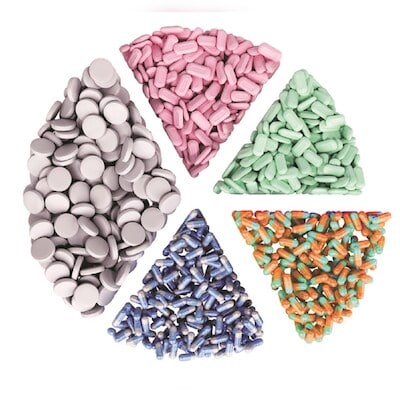A recent study has revealed that over 60 per cent of the fixed dose combination (FDC) drugs used to treat mental health disorders in India are “unapproved” and lack proven therapeutic value, according to a report by The Print. The discovery comes amid a major crackdown on FDC drugs by the country’s top drug regulator.
The study, which appeared in the Journal of Pharmaceutical Policy and Practice this month, involved researchers from the United Kingdom, India and Qatar. It found that unapproved FDCs accounted for 60.3 percent of psychotropic FDC sales in 2020, down slightly from 69.3 percent in 2008 but still alarmingly high.
FDCs, which are a mixture of two or more drugs in a single dosage form such as a capsule, are often available in India without approval from the Central Drugs Standard Control Organisation (CDSCO). Instead, these drugs are approved for manufacture by state authorities without adequate testing of their safety and efficacy.
The study highlighted that “psychotropic FDCs are intensively marketed in India despite their exclusion from Indian clinical guidelines, minimal evidence supporting their therapeutic benefits, concerns about potential harms, and limited use in other markets.”
The persistence of unapproved FDC drugs on the market, which account for a substantial portion of psychotropic FDC sales, raises concerns as these drugs have not undergone rigorous safety and efficacy evaluations, the researchers added.
The report quotes Ashna Mehta, a health economist and co-author of the study, as saying that the problem of unapproved FDCs in India is well known. Despite several attempts by the regulatory body to crack down on them, these unapproved drugs continue to be available.
Previous research by the team, published last year in the same journal, indicated that nearly 70 percent of fixed-dose combination antibiotic drugs sold in India were either unapproved or banned.
Common drugs on the Center’s latest banned list
Last week, the Centre imposed a ban on 156 more fixed-dose combination (FDC) drugs, citing potential risks to human health. This is the most significant action taken against these drugs since 2018, when 344 such combinations were banned for being “irrational”.
FDC drugs, which typically contain a mixture of two or more active pharmaceutical ingredients (APIs) in fixed proportions, were among those banned in a notification issued on August 12. ThePrint has obtained a copy of the notification.
The banned combinations included several antibiotics, as well as medications to treat fever, allergies, colds, skin disorders and pain, among others, which were widely available.
Combinations of commonly used active pharmaceutical ingredients (APIs) with herbs such as ginkgo biloba were also banned, as were formulations that mix vitamins and enzymes.
The list of banned products also included multi-enzyme complexes with up to 12-15 enzymes and more than 20 formulations containing naphazoline, a decongestant commonly found in eye drops.
First published: August 29, 2024 | 16:01 IS
Disclaimer:
The information contained in this post is for general information purposes only. We make no representations or warranties of any kind, express or implied, about the completeness, accuracy, reliability, suitability or availability with respect to the website or the information, products, services, or related graphics contained on the post for any purpose.
We respect the intellectual property rights of content creators. If you are the owner of any material featured on our website and have concerns about its use, please contact us. We are committed to addressing any copyright issues promptly and will remove any material within 2 days of receiving a request from the rightful owner.

